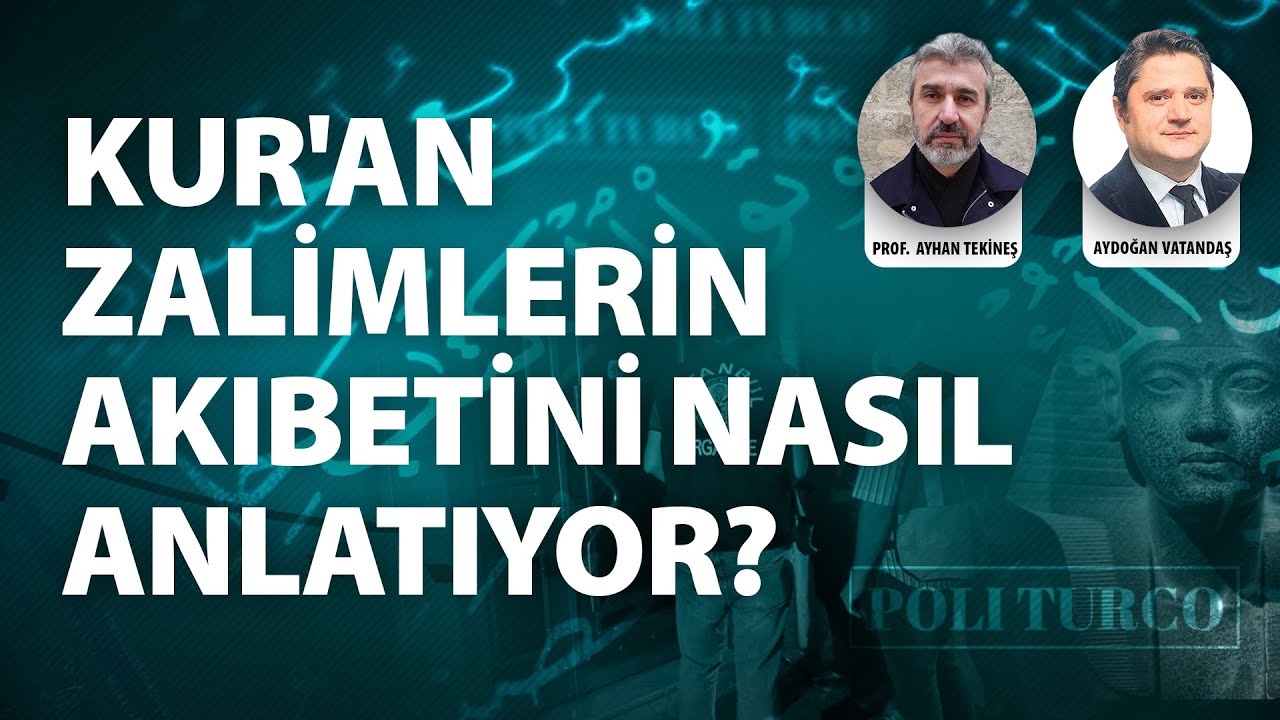Kur'an Zalimlerin Akıbetini Nasıl Anlatıyor?
Unleash Your Creative Genius with MuseMind: Your AI-Powered Content Creation Copilot. Try now! 🚀
In the grand tapestry of history, certain stories echo through the ages, resonating with timeless wisdom. The tale of Pharaoh, recounted in the Quran, serves as a powerful reminder of humanity's struggle for justice, human rights, and ethical governance. Pharaoh stands as one of history's most enduring despots and tyrants, and the Quran, in addressing him, critiques oppressive regimes while offering a model for just leadership.
A Battle Fought with Honeyed Words
The Quran implores us to follow in the footsteps of Moses, illustrating the importance of gentle persuasion and the use of clear evidence when battling tyranny. Moses, confronting Pharaoh's tyranny, exemplified a unique form of resistance – one that relied on the power of a sweet tongue. It was crucial to convince those in Pharaoh's circle and those under his rule, to turn the tide in favor of justice.
This approach underscores the enduring truth that peaceful, persuasive communication can often be mightier than the sword. The lessons we draw from these ancient texts transcend time and culture, offering us a playbook for addressing the tyrannies of our modern world.
The Ethical Imperative in Struggle
In the battle against oppression, the Quran advocates for an ethical approach. It emphasizes the importance of avoiding provocative behavior and retaliatory actions. This wisdom speaks to the universal need for righteousness in the face of adversity.
In our contemporary world, this message still rings true. Engaging in violence and reacting with aggression often muddles the clarity of one's cause. In an age where the world watches and judges through the lens of media, ethics in struggle remain a beacon of hope.
Miracles as Instruments of Change
Moses, a central figure in the tale, harnessed the power of miracles to convey his message. These miracles were not esoteric; they were meant to be witnessed by the masses. The Quran's teachings emphasize the significance of tangible, relatable demonstrations.
In our time, technology has given us new tools for miracles. The internet and social media allow us to share our stories and struggles with the world. They have become the modern-day equivalent of Moses' wonders, seen by all. The impact of these revelations is undeniable.
The Nuances of Resistance
The Quran reminds us that in places devoid of justice and the rule of law, taking up arms may be justified. However, it also acknowledges that in lands governed by laws, violent resistance is inappropriate. This dichotomy reflects the Quran's commitment to upholding the principles of justice.
This message brings us to consider the nuanced approach to resistance in our contemporary world. In societies with functioning legal systems, peaceful methods such as protests and advocacy can be powerful tools. This distinction emphasizes the importance of adopting strategies that are not only effective but also morally grounded.
The Dilemma of Political Parties
The concept of forming a political party, as hinted at in the text, brings forth a conundrum. The universality of a service movement, like the one Moses led, allows it to embrace a diverse range of people. The idea of creating a political party might risk diluting that diversity.
This dilemma resonates with modern politics. The allure of forming a political party to consolidate power can threaten the rich tapestry of a service movement. Striking a balance between representation and diversity remains a challenge for all political leaders.
A Foundation of Values
Within the service movement described, core values of faith, ethics, tolerance, and equality shine brightly. These values underpin the actions of those who commit to the cause.
In a world ever evolving, the significance of these fundamental values cannot be overstated. Regardless of the era, faith, ethics, tolerance, and equality provide the foundation for a just society.
The Enduring Echo of History
As we delve into these ancient texts, we find a mirror reflecting our modern world's struggles and triumphs. The lessons from the story of Pharaoh and Moses serve as a guidebook for those seeking justice, freedom, and ethical governance. The wisdom contained within these verses transcends time and remains a beacon of hope for humanity. The echoing call to justice, ethical conduct, and peaceful resistance resonates with us, urging us to continue the timeless struggle for a better world.

Related Recaps
- Kason Lester's Gravelly Sound on Daughtry's "It's Not Over" | The Voice Blind Auditions | NBC
- Nikki Haley Mocks Trump For Indictment & Says DeSantis Isn't Ready For Prime Time
- [YTP] benis brager
- CASIMIRO REAGE: ONDE O TREM-BALA RIO-SP VAI PASSAR? | Cortes do Casimito
- Travel Vlog | Seaside, Florida | Truman Show Movie Location, Local Shops & More